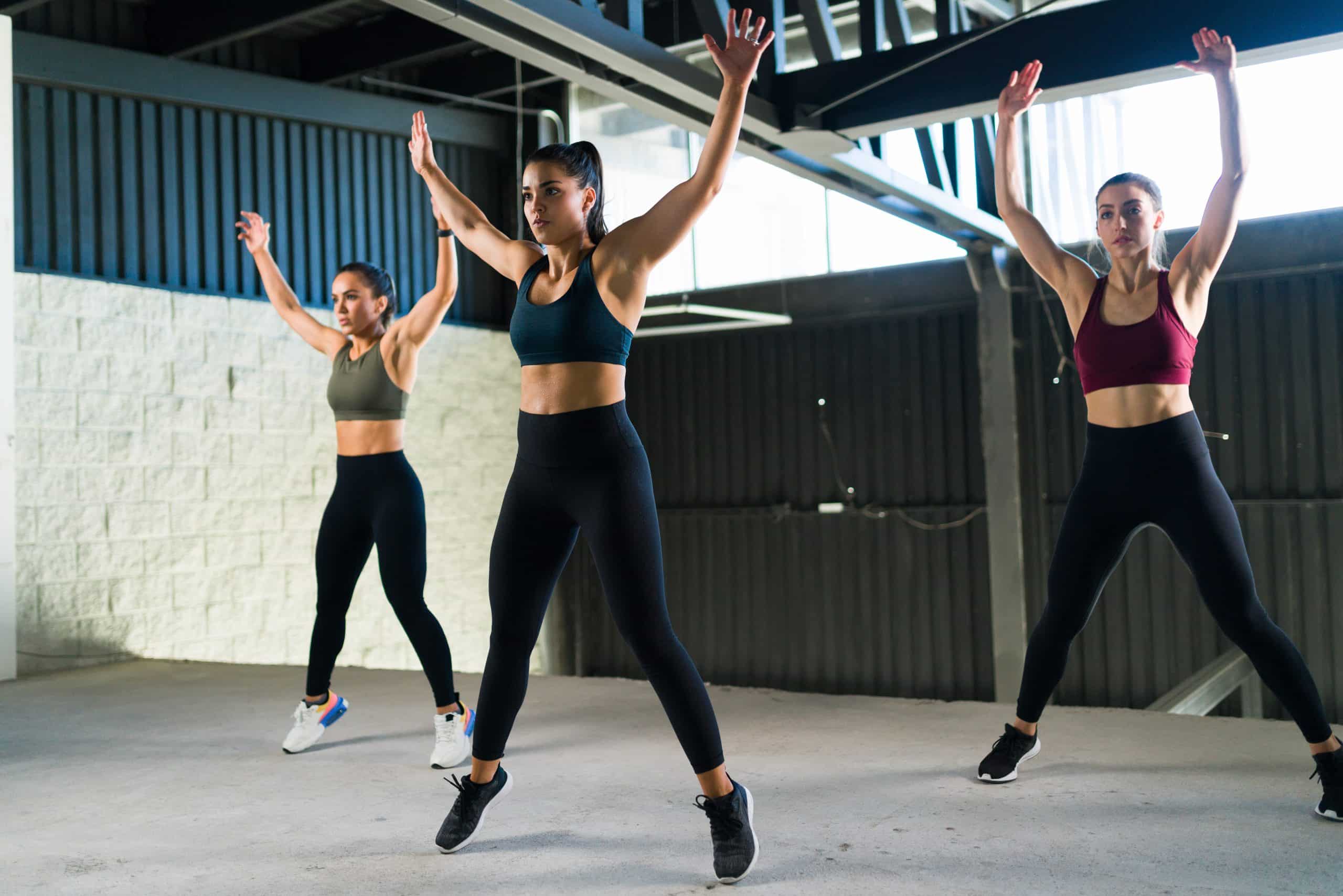For many of us, jumping jacks are a type of exercise that reminds us of childhood. They are just one of the exercises our physical education teachers always made us do.
Get your personalized
meal plan!
While we may have stopped doing jumping jacks after graduating high school, this exercise is still an effective cardio workout anyone can do and benefit from. They are not only good for weight loss, but also for heart health and general wellbeing.
Read on to learn more about calories burned doing jumping jacks, how to use jumping jacks to lose weight, and much more.
How Many Calories Are Burned In Jumping Jacks?
As simple as this question may appear, it is actually quite complicated to answer. Many people fail to realize that when it comes to energy used in physical activities, there are many factors that affect it.
These variables make it difficult to put a precise amount on the calories burned when doing this exercise. This means that in a class where people are doing 300 jumping jacks, the total calories burned will not be the same for everyone.
The main variables include:
Body size – i.e. height and weight
Taller and heavier people will burn more calories than slimmer and shorter people.
The taller you are, the more mass you have to hold up against gravity, which results in your body using up more energy per day. As for heavier people, they require more energy to move their bodies, which also equates to more calories burned whether exercising or at rest.
Genetic makeup
Have you ever wondered how some people can eat as much as they want without ever gaining weight while you cannot? This could be due to your genetics, specifically your metabolism.
Metabolism refers to a series of chemical processes that are required to maintain body functions, including the process of turning the food and drinks we consume into energy to be used by the body (6). Some people are born with a fast metabolism and their bodies can quickly turn calories consumed into energy. However, many others have a slower metabolic rate.
The slower your metabolism is, the slower food and drinks get turned into energy. When the calories consumed take too long to be turned into energy, the body changes them into fat, which it then stores in the body. This leads to both weight gain and a higher body fat percentage (10, 5).
Betterme will keep you laser-focused on your weight loss journey! Nutrient-packed meal plans, fat-blasting workouts, galvanizing challenges and much more. Try using the app and see for yourself!
Sex
Men tend to burn more calories than women whether exercising or at rest. This is not because they have an innately faster metabolism, but simply because:
- Men are generally bigger than women (refer to body size above)
- Men’s bodies have less fat deposits and usually have more muscle than women’s bodies (9). Research has shown that the more muscle you have, the more calories you will burn. Each pound of muscle can burn up to 7 kcals a day, whereas each pound of fat only burns around 3 calories a day (2).
Due to these two simple facts, the calories burned by men and women when doing 50 jumping jacks will typically vary greatly. This is due to factors such as a higher muscle mass and body mass in males compared to females, although this is a general statement and every individual can vary.
Other factors that can affect the number of calories burned doing jumping jacks include:
- Exercise intensity – If two people are simultaneously doing 2,000 jumping jacks, the calories burned by the person who jumps higher and faster will be more than the person who maintains a moderate pace and does not jump as high.
- Age – We lose strength and muscle mass as we age. The weaker you are, the less intense your workout will be. The less muscle you have, the fewer calories you burn during and especially after your workout.
How Many Jumping Jacks Will Burn 100 Calories?
As mentioned above, different variables affect how many calories you burn per workout, not just with jumping jacks. The best way to determine the calories burned per individual who performs 100 jumping jacks is to use an online calorie calculator.
To determine this you must:
- Start your timer and then jump 100 jacks. You can do this at a moderate or vigorous pace – the choice is yours.
- Once you are finished, stop the timer and take note of how many minutes/seconds it took you to complete the workout.
- Go online and find a calorie calculator.
- Input your weight (usually in lbs)
While such calculators do not consider every single factor that affects calorie burning per day, they still provide a decent rough estimate that you can use to determine how hard you are working out.
Read more: Plyometric Jumping: Why And How It Works.
How Many Jumping Jacks Burn 500 Calories?
Due to the aforementioned factors, the number of jumping jacks it takes to burn 500 calories will vary per person. However, if you’d like to know how many minutes it will take you to burn 500 kcal from this workout, the CDC has a simple way to help.
In their list of general physical activities defined by level of intensity, the CDC claims that when you do jumping jacks at a vigorous pace, you will burn approximately 7 calories per minute. Doing the same at a slower, more moderate pace burns anything between 3 and 7 kcals a minute (4).
Using these numbers, we can assume that to burn 500 calories:
- At a very moderate pace, burning just 3 calories per minute will take you close to 3 hours
(500/3)/60 = 2.7 hours
- At a vigorous pace, burning the average 7 calories per minute will take you slightly over an hour
(500/7)/60 = 1.2 hours
How Many Jumping Jacks Will It Take To Burn 400 Calories?
To determine this, you must first determine how many calories you burn per minute while doing this exercise. A simple equation for finding out one minute of jumping jacks calories burned is as follows:
- Multiply the METs (metabolic equivalents) of an exercise by 3.5
- Take this number and multiply it by your weight in kilograms
- Divide this number by 200
BetterMe app will provide you with a host of fat-frying fitness routines that’ll scare the extra pounds away and turn your body into a masterpiece! Get your life moving in the right direction with BetterMe!
If a person weighs approximately 70 kg, here’s how many calories they will burn in a minute of moderate activity:
(Jumping jacks METs according to the CDC 7 x 3.5) x 70 kg = 1470
1470/200 = 7.35 kcals per minute
If a person who weighs 70 kg burns 7.35cals per minute doing jumping jacks, then it will take about 54 minutes to burn 400 calories.
400 kcals/7.35 kcal a min = 54.42 minutes
Is 100 Jumping Jacks Good For Weight Loss?
Yes, it is.
Any form of increased physical activity, particularly if you live a sedentary lifestyle, can ultimately lead to weight loss. Jumping jacks cardio is a good stepping stone for those who are new to working out. Not only are they fun, they are also a high-impact exercise that burns a large number of calories in a short amount of time. However, individuals with joint issues or a larger body weight should build up gradually to the impact and intensity of jumping.
Read more: What Does Jump Rope Work Out? Use This Guide To Get The Most Out Of Your Next Workout.
FAQs
What are the benefits of using a jumping rope for 5 minutes?
The benefits of jumping rope are the same as those for jumping jacks. It will:
- Improve coordination
- Provide a full-body workout that is fantastic for weight loss
- Build muscle strength and power, particularly in the lower body
- Improve heart health and lower the risk of cardiovascular diseases (1)
- Increase bone density in the lower extremities (8, 7, 3)
- Provide a fun way to get into exercising and improving general health
What is a HIIT jump rope workout?
This is simply a quick skipping workout that alternates between periods of jumping rope at a fast pace and rest periods. During the rest periods, you can either stop completely or do slower workouts before resuming the workout routine.
A simple HIIT jump rope workout routine can be as follows:
- 20 seconds skipping followed by 10 seconds of rest for a predetermined period of time. If you are experienced with a skipping rope, you can change your skipping styles to make the workout more fun and challenging
- 30 seconds skipping rope – 15 seconds stop and rest – 30 seconds jumping jacks. This can be repeated for 20 to 45 minutes.
What is the best way to increase vertical jump?
What is the best way to increase vertical jump? A vertical jump is how high a person can reach when jumping from a standing position. This jump is generally used as a test for endurance and lower-body strength. Some lower-body exercises that can help you improve your vertical jump include:
- Squats – all variations, from simple air squats to goblet squats, jump squats, sumo squats, split squats, and squat jacks
- Calf raises
- Forward, back, and walking lunges
- Step ups
- High jumps
- Mountain climbers
- Tuck jumps
- Sprints
Is doing 100 jumping jacks good?
Yes, it is.
It is a simple but effective way of staying active and countering the multiple undesirable effects of a sedentary lifestyle.
Are jumping jacks cardio?
Yes, they are. Other cardio exercise examples include running, walking, jogging, boxing, swimming, water aerobics, cycling, dancing, and weighted hula hooping.
Do jumping jacks burn more calories than running?
While jumping jacks are quite a good calorie-burning exercise, running at a vigorous pace will still burn more calories than any kind of jumping workout.
How many calories are burned in 1 minute of jumping jacks?
As previously stated, the average number of calories burned per minute of vigorous exercise – including jumping jacks – is approximately 7 kcal/min (4). This number can be higher, depending on factors such as weight, height, and muscle mass.
The Bottom Line
Determining the number of calories burned when doing jumping jacks is a good way to track how effective your workout is for your health and weight loss goals. Using an online calculator is a quick and easy way to come up with a rough estimate.
Remember that calorie burning is dependent on many factors and can vary significantly from person to person. Instead of stressing about how many calories 1 jumping jack burns, or how many calories are burned in 1 minute of this workout, we suggest focusing on increasing workout intensity.
Doing this will automatically increase the number of calories you burn in every workout session and can be quite beneficial for fat loss and weight loss.
DISCLAIMER:
This article is intended for general informational purposes only and does not serve to address individual circumstances. It is not a substitute for professional advice or help and should not be relied on for making any kind of decision-making. Any action taken as a direct or indirect result of the information in this article is entirely at your own risk and is your sole responsibility.
BetterMe, its content staff, and its medical advisors accept no responsibility for inaccuracies, errors, misstatements, inconsistencies, or omissions and specifically disclaim any liability, loss or risk, personal, professional or otherwise, which may be incurred as a consequence, directly or indirectly, of the use and/or application of any content.
You should always seek the advice of your physician or other qualified health provider with any questions you may have regarding a medical condition or your specific situation. Never disregard professional medical advice or delay seeking it because of BetterMe content. If you suspect or think you may have a medical emergency, call your doctor.
SOURCES:
- Cardiovascular Effects and Benefits of Exercise (2018, ncbi.nlm.nih.gov)
- Controversies in Metabolism (n.d., unm.edu)
- Exercise and Bone Health (2020, orthoinfo.aaos.org)
- General Physical Activities Defined by Level of Intensity (n.d., cdc.gov)
- Metabolic Determinants of Weight Gain in Humans (2019, ncbi.nlm.nih.gov)
- Metabolism (2023, britannica.com)
- Rope skipping increases bone mineral density at calcanei of pubertal girls in Hong Kong: A quasi-experimental investigation (2017, ncbi.nlm.nih.gov)
- The Effectiveness of Physical Exercise on Bone Density in Osteoporotic Patients (2018, ncbi.nlm.nih.gov)
- The New Science on How We Burn Calories (2021, nytimes.com)
- The truth about metabolism (2021, health.harvard.edu)










